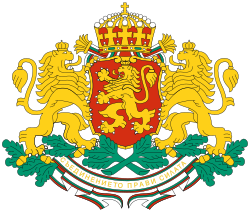Aftermath
The ruling coalition won a majority and Aleksandar Tsankov remained Prime Minister. In February 1924 the Broad Socialists left the government, although a faction led by minister Kazasov opposed the decision and later founded the Socialist Federation party. In early 1924 large factions of the former Democratic and Radical parties which had merged into the DA broke away to re-establish their parties. [1]
In early 1924 the government rolled back many reforms implemented by the Agrarians and approved the authoritarian State Protection Act [ bg ]. Despite reaffirming the Neuilly and Niš agreements, the government had a tense relationship with neighbouring Yugoslavia and Greece. Following the Tarlis incident in July, the Politis–Kalfov Protocol was signed, however the Greek Parliament didn't ratify it. In 1925 the Petrich incident took place, which saw Greek troops enter Bulgaria until an intervention from the League of Nations. Following the 1925 St. Nedelya Church bombing, the State Protection Act was amended and expanded to allow death sentences for those "responsible for dangerous acts and those who assisted them", many opposition leaders were imprisoned and killed. These harsh measures and international isolation resulted in the moderate wing of the remaining DA taking a leading role in the party and forcing Tsankov's resignation. He became Chairman of Parliament and Andrey Lyapchev succeeded him as Prime Minister. [5] Because of the authoritarian measures, close relationship with Fascist Italy and Tsankov later founding the nazi-inspired National Social Movement, he and his governments have often being characterized as fascist. [6] [7]
Lyapchev's government restored freedom of speech and press and issued an amnesty for many political prisoners. During its term the first post-war foreign loan (the Refugee Loan [ bg ]) was taken in order to improve conditions for Bulgarian refugees who had settled in the country after World War I. [8]
This page is based on this
Wikipedia article Text is available under the
CC BY-SA 4.0 license; additional terms may apply.
Images, videos and audio are available under their respective licenses.


